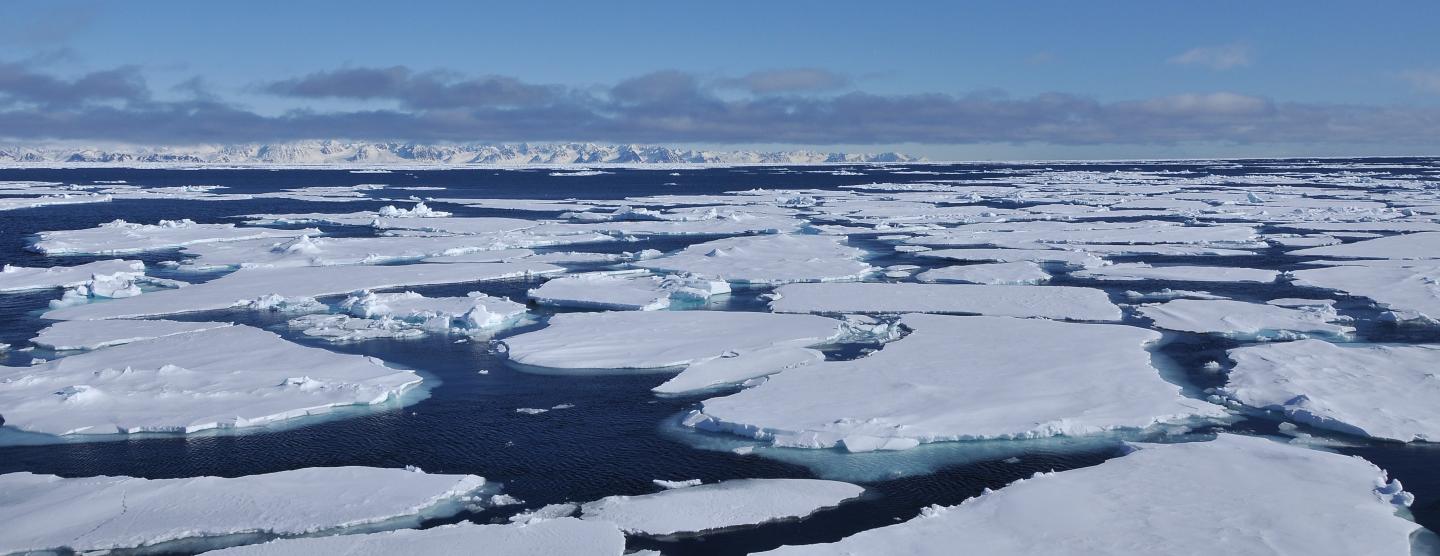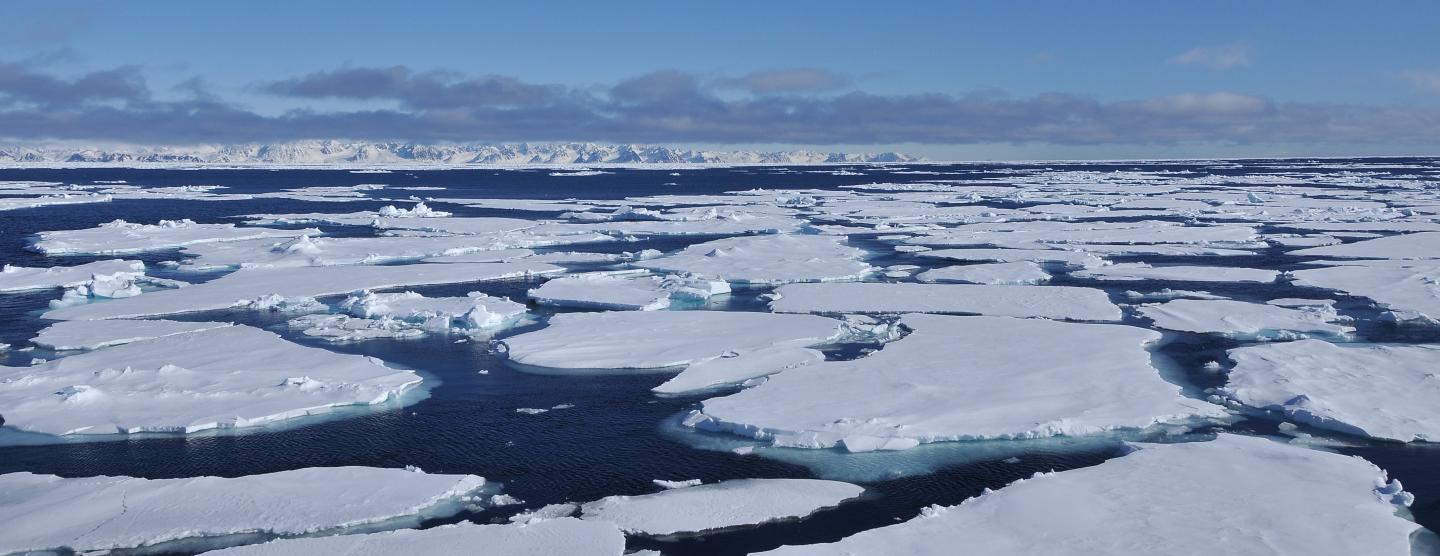
Credit: Matthias Forwick
However, there was a small ice-free 'polynya' between the frozen continents and the open ocean where microscopic marine life prevailed, which would have provided otherwise unavailable food for fish and mammals.
The study was led by Geological Survey of Norway (NGU), the Centre for Arctic Gas Hydrate, Environment and Climate at The Arctic University of Norway, and the Centre for Chemical Sciences at the University of Plymouth.
The researchers believe their findings are of international importance since they show the vulnerability of marine ecosystems in the northern oceans to periods of rapid climate change, but also their adaptability to various extreme climate states.
Jochen Knies, a research scientist from NGU and The Arctic University of Norway, is the study's lead author. He said: "We were looking for evidence of biological life in sediments at the bottom of the ocean. In doing so, we found that between the sea ice-covered oceans and the ice sheets on land, there must have been a small ice-free corridor that extended over hundreds of kilometres into the Arctic. Such ice-free regions are often called 'polynyas', a Russian expression for an area of open water that is surrounded by sea ice and/or ice sheets."
The research first involved the retrieval of a sediment core from the bottom of the ocean in the south west Barents Sea, a region north of Norway of major importance for the fishing industry today.
Back in their respective laboratories, the Norwegian scientists set about dating the core and analysing fossilised remains of biological organisms preserved within it, while the Plymouth group performed analysis of the chemical 'fingerprints' of the algae living in the region in the past.
The results revealed that the polynya was sustained for at least 5,000 years, when the surroundings were largely covered by ice, and global ocean circulation was at a minimum.
During a subsequent period of abrupt climate change around 17,500 years ago, cold freshwater from the melting ice caps caused the entire northern oceans to be covered by thick sea ice and the polynya disappeared. This resulted in a dramatic decline in marine life and it took up to 2,000 years to recover.
Today, such polynyas are common around Antarctica and Greenland and form through a combination of offshore winds blowing from nearby ice sheets and warm water rising from the deep ocean.
In areas of extreme cold and little access to food, polynyas provide an oasis for marine mammals to survive and they are also critical for global ocean circulation.
Simon Belt, Professor of Chemistry in Plymouth, said: "Polynyas in the polar regions are common nowadays, but until now it has been really difficult to confirm their existence in the past. However, by finding chemical fossils of algae that live in the open ocean and in sea ice, we have shown that polynyas must have existed during the last Ice Age, providing us with an insight into how marine life survived during a period of otherwise extreme climate conditions."
###
Media Contact
Alan Williams
[email protected]
44-175-258-8004
@PlymUni
http://www.plymouth.ac.uk
Original Source
https://www.plymouth.ac.uk/news/scientists-show-polar-polynya-supported-marine-life-during-last-ice-age http://dx.doi.org/10.1038/s41467-018-06252-8





